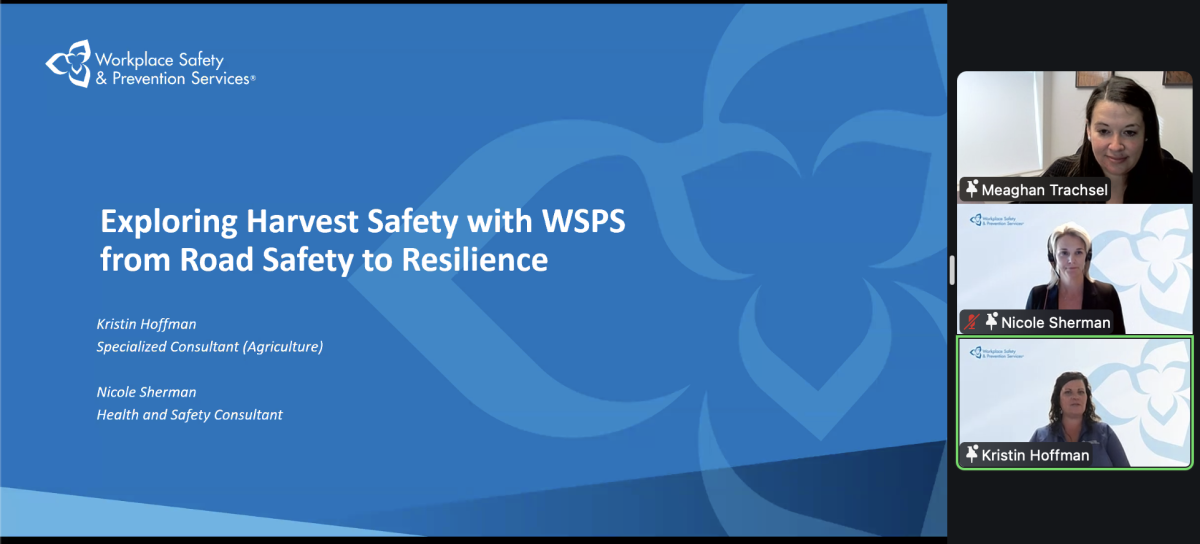Canada’s updated regulations for organic foods have been posted for public comment ahead of their expected implementation date at the end of June.
“The Canadian organic sector — including farmers, processors,
certifiers, retailers and consumers — has been working diligently over the
past year and a half to adjust its organic standards in time for this new
regulation,” said Matthew Holmes, managing director of the Organic Trade Association (OTA) in a release Friday.
Read Also

Exploring Harvest Safety
Kristin Hoffman of WSPS explains measures for increased farm safety around harvest season
The new regulations, posted in Saturday’s Canada Gazette and due to take effect June 30 after a public comment period, are expected to ensure organic labeling on food products will be enforced and protected by the government, a move which the OTA said will align Canada with its major trading partners and give consumers confidence in national organic standards.
“When these regulations come into effect this summer, consumers will have a clear idea of what organic is, and will know the Canadian Food Inspection Agency (CFIA) is monitoring and enforcing organic claims in the
marketplace,” Holmes said.
The new regulations are expected to provide clarity on what products are covered, as well as a new “Canada Organic Regime” logo. The regulations are also expected to provide detailed provisions on organic imports and exports.
Such provisions include the possibility for an equivalency agreement with trading partners such as the U.S. and Europe, the OTA said.
Plus, the association said, the government’s regulations include language allowing possible equivalency agreements with other regulated organic standards, and “more flexible” rules for Canadian farmers and processors considering export markets.
That means products to be made in Canada but destined strictly to a specific export market can meet the destination market’s requirements without having to meet the Canadian standards too, OTA said.
OTA said the gazetted regulations will, for now, limit their scope to food and beverages for humans, feed for livestock, and the cultivation of crops such as flowers.
Non-food and other sectors beyond CFIA authority won’t be subject to the regulations for the time being, OTA noted, and until they are, those sectors — including aquaculture, textiles and personal care products — will still be able to make market claims based on their third-party organic certifications.















